Did you know that the humble moringa tree—often called the “miracle tree”—produces seeds packed with compounds so unique that some scientists believe they could rival popular superfoods? While moringa leaves often steal the spotlight, its seeds remain a hidden treasure that many people, including your doctor, might never mention. Yet, in many parts of Asia and Africa, moringa seeds have been quietly used for centuries in daily diets and folk remedies.
In this article, you’ll uncover 12 remarkable benefits of moringa seeds that rarely make it into mainstream conversations. Some are backed by early research, while others are rooted in cultural traditions passed down through generations. Whether you’re curious about natural energy, digestion support, or everyday vitality, these insights could transform how you see this tiny seed. By the end, you’ll walk away with practical ways to integrate moringa seeds into your daily routine—and why they deserve a place in your pantry.
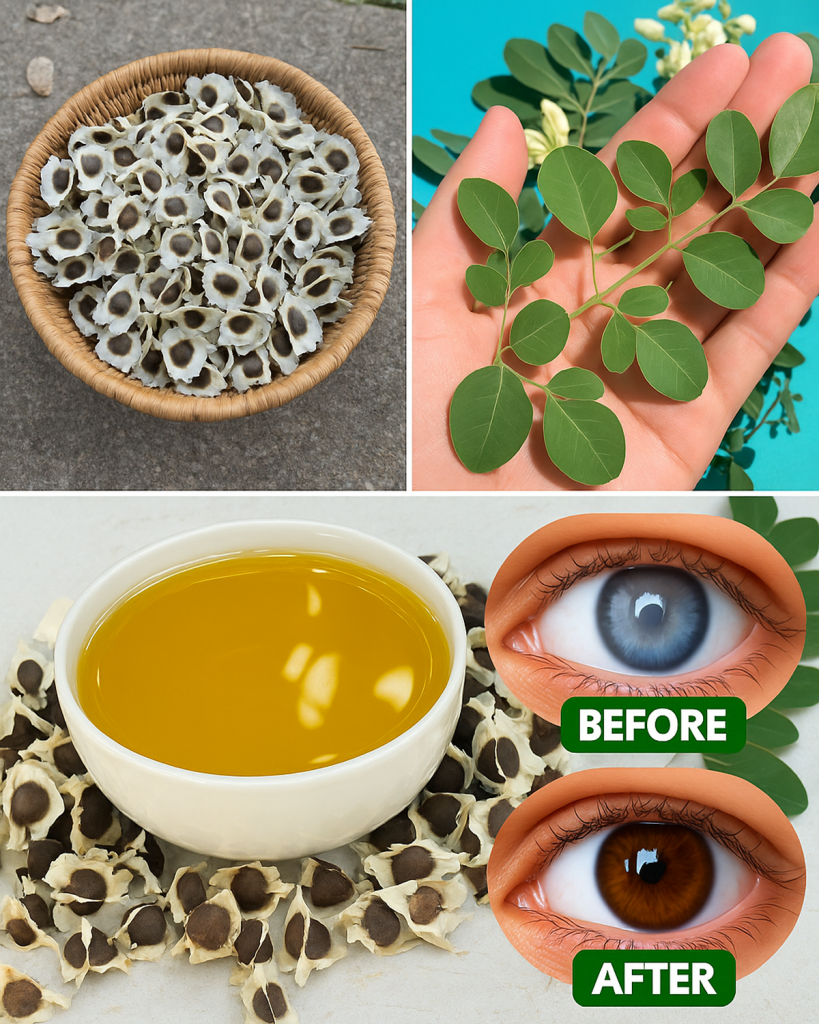
1. A Natural Energy Lift Without the Jitters
Many people turn to coffee or energy drinks for a quick boost. But moringa seeds are believed to offer a smoother kind of energy. Unlike caffeine, which spikes and crashes, moringa contains a unique mix of antioxidants, amino acids, and plant-based compounds that may support sustained vitality. In rural communities in India, chewing a few roasted moringa seeds is a traditional pick-me-up before long workdays. For anyone looking to reduce their caffeine dependence, moringa seeds can provide a gentle alternative.
2. Packed with Plant-Based Protein
Protein isn’t just for gym enthusiasts—it’s a building block for every cell in your body. Moringa seeds deliver a surprisingly high amount of plant-based protein, making them a rare find among seeds. A small handful can complement vegetarian or vegan diets where protein is sometimes harder to source. While they don’t replace a full meal, they can act as a nutrient-dense snack that supports muscle recovery and satiety.
3. Rich in Antioxidants That Fight Free Radicals
Free radicals are unstable molecules that contribute to aging and stress within the body. Moringa seeds contain a variety of antioxidants—such as quercetin and chlorogenic acid—that help neutralize these harmful compounds. While no food can halt aging, incorporating antioxidant-rich seeds may support the body’s natural defenses. In fact, traditional healers in parts of Africa use moringa seeds in decoctions believed to “cool the body” and restore balance after physical strain.
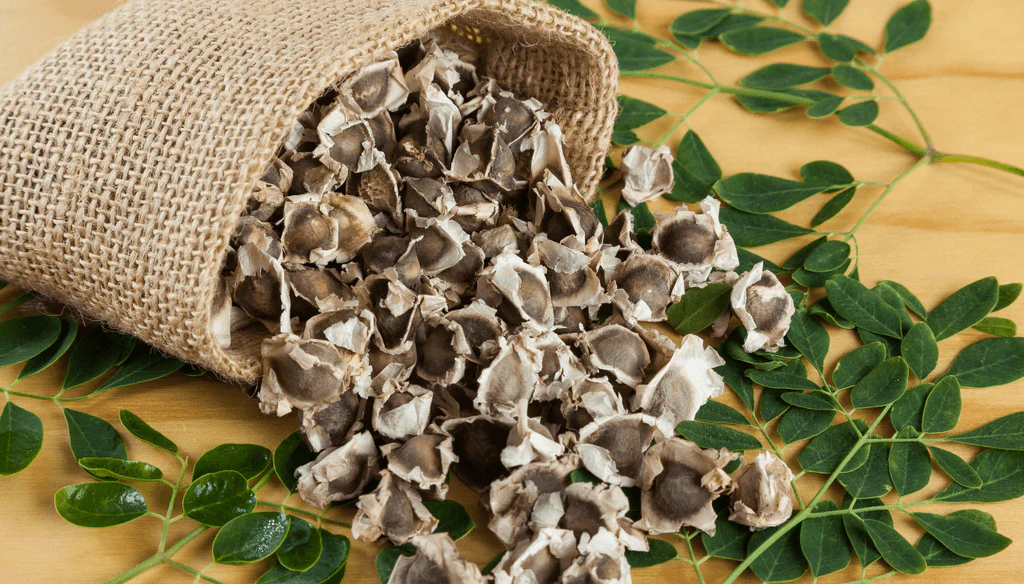
4. Supporting Healthy Digestion
If you’ve ever struggled with bloating or sluggish digestion, moringa seeds may offer gentle support. Their natural fiber content helps regulate bowel movements, while certain phytochemicals are said to stimulate digestive enzymes. Some communities roast and powder the seeds, then sprinkle them over meals for both flavor and function. It’s not a miracle cure for digestive issues, but for those looking to add more natural fiber, moringa seeds provide an easy option.
5. Traditionally Linked to Blood Sugar Balance
One of the lesser-known uses of moringa seeds in folk medicine involves supporting healthy blood sugar. Early studies suggest that compounds within moringa may influence glucose metabolism, though research is still developing. In practical terms, many people in traditional settings consume moringa seeds alongside carbohydrate-rich meals, believing it helps steady their energy afterward. If you often feel drained after lunch, experimenting with a sprinkle of moringa seed powder might be worth considering.
6. Skin and Hair Nourishment from the Inside Out
Beauty isn’t only about creams and serums—what you eat matters, too. Moringa seeds contain natural oils and antioxidants that many believe promote healthier skin and hair. In some cultures, moringa seed oil is directly applied to the scalp or mixed into lotions. Consuming the seeds themselves adds another layer of nourishment, potentially supporting skin hydration and resilience. Think of it as feeding your beauty routine from within.
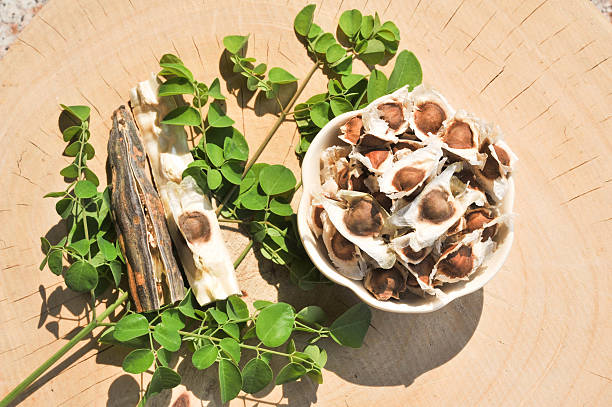
7. Aiding Natural Detox Processes
The body is constantly working to filter out waste and maintain balance. Moringa seeds are thought to support these detox pathways, thanks to their fiber, antioxidants, and unique phytonutrients. In fact, crushed moringa seeds have even been used in water purification in rural villages. While your body doesn’t need “detoxing” in the extreme sense, adding natural foods that lighten the load on your system can be a wise choice.
8. Gentle Support for Joint Comfort
As we age, joint stiffness often becomes part of daily life. Moringa seeds, with their anti-inflammatory plant compounds, are traditionally consumed to ease general discomfort. For example, in some households, families prepare moringa seed tea for elders to help maintain mobility. While it’s not a substitute for medical treatment, integrating moringa into your diet may provide a gentle layer of support for active lifestyles.
9. Potential Immune System Boost
Moringa seeds are a powerhouse of micronutrients, including zinc and vitamin C—both important for supporting immunity. While you should never rely on one food to “prevent illness,” consistent intake of nutrient-dense foods builds a stronger foundation. In fact, moringa seeds are often included in community nutrition programs in developing regions because of their high nutrient density.
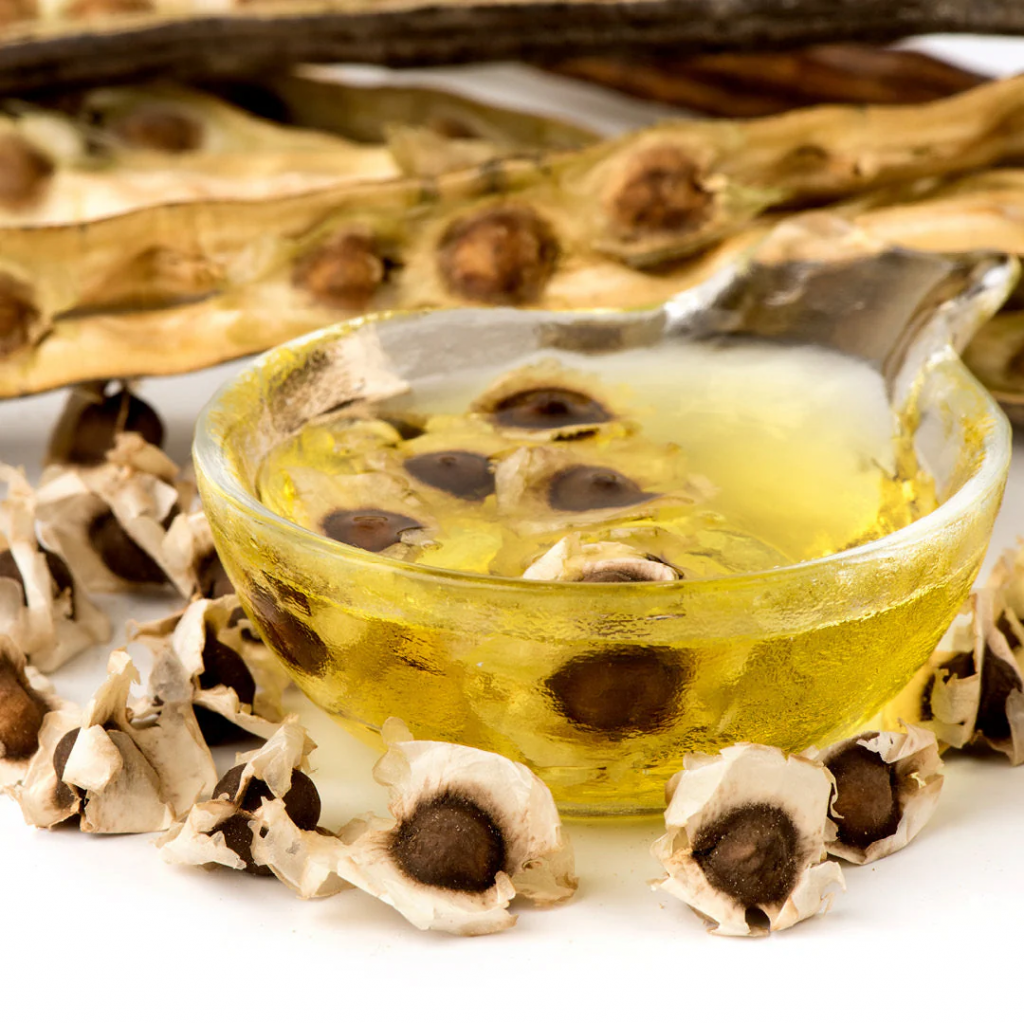
10. Supporting Heart-Friendly Habits
Heart health is influenced by many factors, from diet to exercise. Moringa seeds may play a small but meaningful role. Some animal studies suggest that they help maintain healthy cholesterol levels, likely due to their plant sterols and antioxidant compounds. Combined with a balanced lifestyle, adding moringa seeds to meals could be one more way to nurture cardiovascular wellness naturally.
11. An Eco-Friendly Superfood
Moringa isn’t just good for your body—it’s good for the planet. The moringa tree grows quickly, thrives in poor soil, and requires little water. Its seeds, in particular, are easy to harvest and store, making them an accessible food source in many regions. By choosing moringa seeds, you’re also supporting sustainable farming practices and reducing reliance on resource-heavy crops.
12. Versatile in Everyday Cooking
Beyond health benefits, moringa seeds shine in the kitchen. Their slightly nutty flavor pairs well with soups, salads, and roasted dishes. In powdered form, they blend seamlessly into smoothies and teas. Some people enjoy them roasted like peanuts, while others prefer a milder seed oil for cooking. Their versatility makes it easy to experiment and discover your own favorite way to enjoy them.
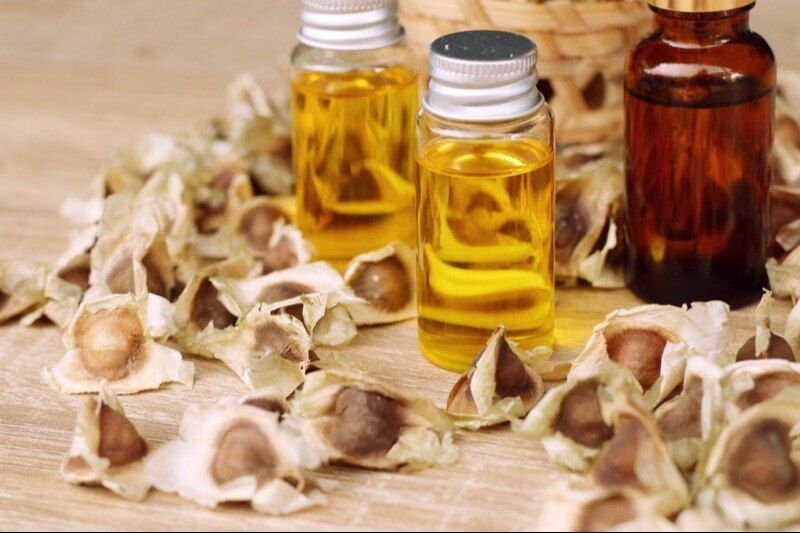
Practical Ways to Use Moringa Seeds
Here are a few simple ideas you can try today:
| Method | How to Use | Notes |
|---|---|---|
| Roasted Snack | Lightly roast seeds and eat as a crunchy snack | Start with 3–4 seeds per day |
| Smoothie Add-In | Blend ½ teaspoon of seed powder into your smoothie | Best with fruit bases |
| Tea | Steep crushed seeds in hot water for 5–7 minutes | Mild, earthy flavor |
| Cooking Oil | Use moringa seed oil for sautéing or salad dressings | High smoke point, stable for cooking |
These small changes can help you incorporate moringa into your routine without needing a drastic diet shift.
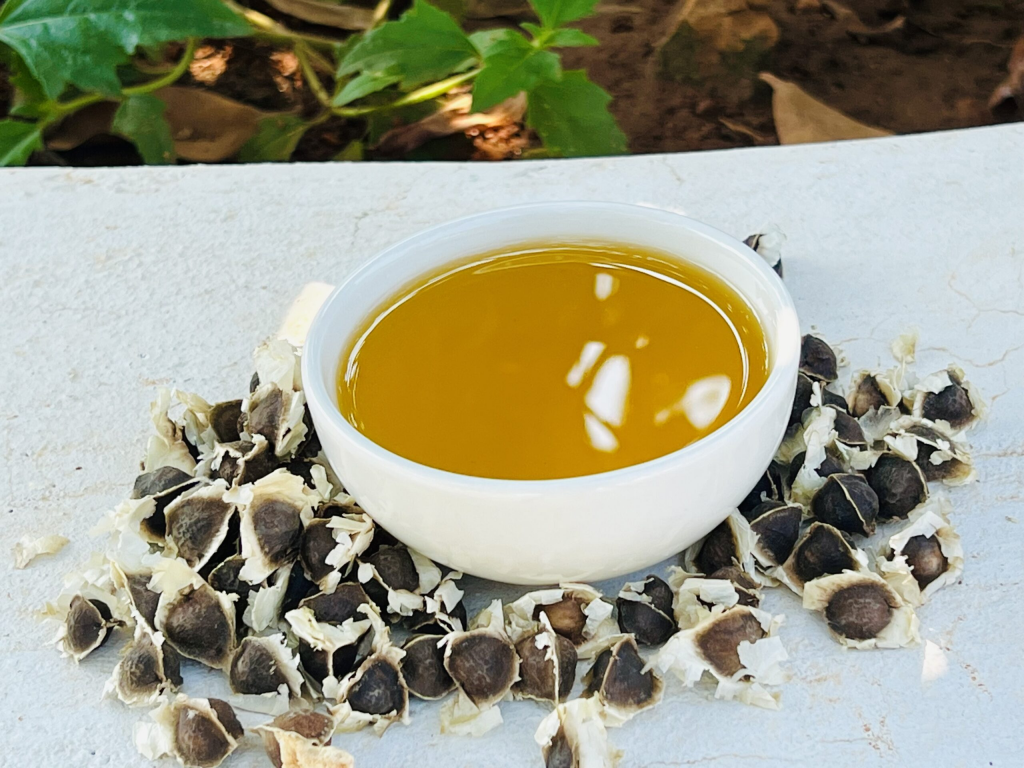
Conclusion
Moringa seeds may not yet be on every grocery store shelf, but their long history of use and growing recognition worldwide suggest they won’t remain a secret for long. From gentle energy support to eco-friendly farming, the benefits are both personal and global.
Frequently Asked Questions
Are moringa seeds safe to eat every day?
Yes, in small amounts. Start with just a few seeds to see how your body responds.
Can moringa seeds replace medical treatment?
No. They may complement a balanced lifestyle but cannot substitute professional medical care.
What’s the best way to consume them?
Most people prefer roasted seeds or seed powder in smoothies and teas.
Disclaimer: This article is for informational purposes only. It is not intended as medical advice and should not replace consultation with a qualified healthcare professional.




